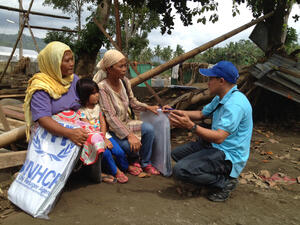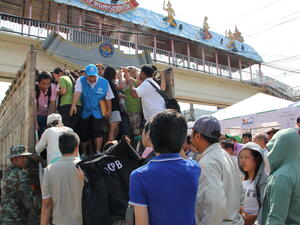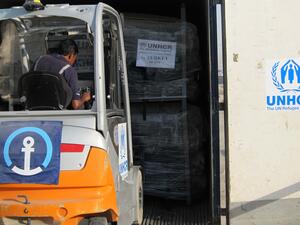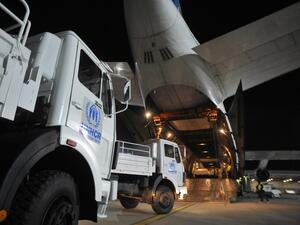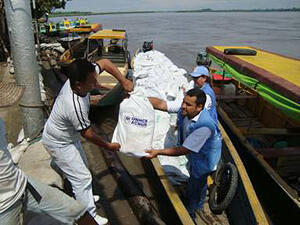UNHCR airlift arrives in Sri Lanka with 60 tonnes of relief aid
UNHCR airlift arrives in Sri Lanka with 60 tonnes of relief aid
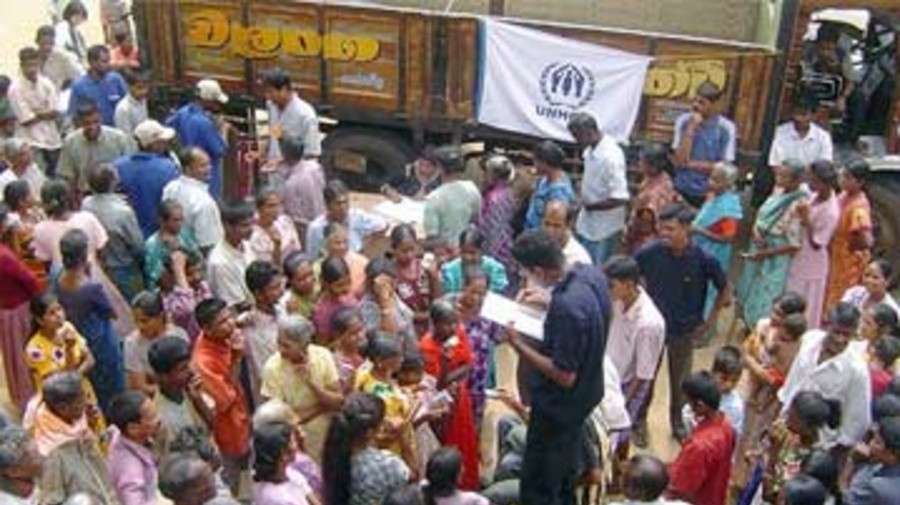
Sri Lankans displaced by the tsunami receive UNHCR aid supplies in Batticoloa, Sri Lanka.
COLOMBO, Sri Lanka, Jan 10 (UNHCR) - An airlift of 60 tonnes of much-needed UNHCR relief aid has touched down in Colombo, boosting the refugee agency's supplies and storage capacity for hundreds of thousands of displaced people in Sri Lanka's tsunami-devastated communities.
The 10,000 pieces of plastic sheeting and five portable warehouses arrived at Colombo's Bandaranaike International Airport on Saturday night from UNHCR's central stores in Copenhagen. Shortly after their arrival on a Lufthansa cargo flight, the supplies were cleared and loaded onto three 40-foot trucks bound for the UNHCR warehouse in Colombo.
UNHCR's logistics and supply teams are working with those of the World Food Programme, the UN Children's Fund and the International Organization for Migration to urgently get relief items to all those in need. The plastic sheeting is crucial to providing temporary shelter in a country where 115,207 houses have been either damaged or destroyed. This figure is expected to rise, as the damage assessment in some areas awaits completion.
The five portable warehouses, which have a capacity of 1,000 cubic metres each, will be sent to Kilinochchi, Trincomalee, Batticaloa, Ampara and a southern location to increase UNHCR's storage capacity as a lead agency in logistics and aid distribution within UN agencies.
The UN refugee agency, which usually cares for refugees fleeing conflict and persecution, has taken the exceptional decision to assist in this crisis due to the magnitude of the disaster.
"This is a disaster with huge humanitarian needs, so every agency must chip in for the much-needed response," said UNHCR Coordinator in Sri Lanka, Neill Wright.
Immediately after the tsunami, UNHCR in Sri Lanka opened up its local relief stockpiles to deliver emergency assistance to victims. The refugee agency has seven offices in Sri Lanka, where it has worked for 17 years helping people displaced by the civil war, as well as returning refugees. While the agency has previously opened its global emergency stockpiles as a disaster response, it has never undertaken such a significant role in reacting to a natural disaster.
By Lyndon Jeffels in Colombo, Sri Lanka


